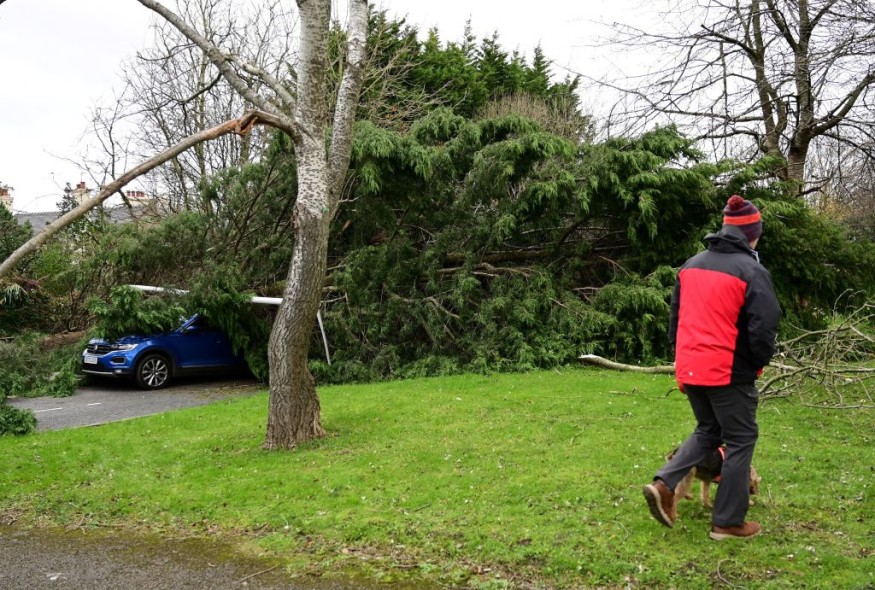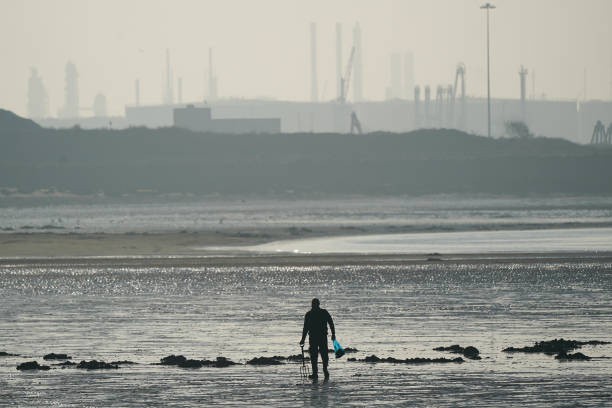According to a leaked internal memo, England's Environment Agency has directed its personnel to "shut down" and disregard allegations of low-impact pollution occurrences because it lacks the funds to examine them.

Categorization
The judgment on so-called category 3 and 4 accidents means that situations such as agricultural contamination or hazardous wastes may not be thoroughly examined. River organizations and NGOs have been outraged by the decision.
"No response to underfunded low- and no-impact environmental events," also known as category 3 and 4, according to an Environment Agency briefing to staff published in November and reviewed by the Guardian and the Ends Report.
Dissatisfaction

The agency's dissatisfaction with ministers and the money set aside for its operations is also revealed in the leaked paper. According to the report, the EA's leadership team has "made it clear to the government that you get what you pay for."
According to the briefing, pollution events produced by a regulated site or a water business would be exceptions to the rule. Still, it does not explain how it will establish the source or severity of an incident if it is not attended to or examined.
Reasoning
It will have benefits, according to the agency's briefing, such as "reduced overall effort spent on the incidents that present the lowest risk to the environment," increased effort on "charge-funded regulation," more space to prioritize higher-risk incidents, "increased consistency of response and service for customers," and reduced disruption to officers during the day and after hours, among others.
According to a presentation on what is known internally as the incident triage project, the Environment Agency maintains that it presently reacts to more than 70,000 cases each year.
The agency's National Incident Recording System, on the other hand, indicates that while 116,000 possible occurrences were reported to the agency in 2021, only 8,000 were attended, down from 12,000 in 2016, when 74,000 were notified.
The presentation deck adds, "We cannot keep attempting to achieve what we are not funded to do; we do not have the money or resources." "We're in a non-sustainable situation." Staff resilience and well-being are being harmed as our incident responders are under increasing strain."
Least Priority
Employees are urged not to establish category 3 or 4 events that do not include a water firm or a regulated site: "Don't call site, don't provide any details. In anticipation of complaints, template reply letters have been produced for agency workers.
"A lot of category two occurrences start as 3s until they are attended," said one Environment Agency officer, who did not want to be identified since employees had been cautioned against speaking to the media. An example of category three might be a "2km spill of oil or sewage in a river."
A second officer, who requested anonymity, said it would be "difficult" to determine the event's severity without going inside. They said that the EA's reaction to pollution had been declining for some time and that an incident would not be handled by the agency "until dead fish were floating around."
According to the agency's customer service pledge, the regulator's funding for reacting to environmental accidents was halved last year, and it would no longer offer feedback on any action taken to address pollution occurrences, in addition to decreasing replies.
Budget Decrease

It comes after the agency's grant-in-aid budget has been slashed for several years. In the last expenditure review in October 2021, the government awarded the Department for Environment, Food and Rural Affairs (Defra) and its agencies an additional £4.3 billion. This year, an overview of the Environment Agency's settlement is required.
The Rivers Trust's chief executive, Mark Lloyd, described the move as an "appalling disgrace." "Pollution occurrences in Category 1 and 2 have a significant environmental impact, yet they are only the tip of the iceberg." They are what cause rivers to die by a thousand cuts," he added. "The great majority of cases are in lesser categories."
"If our rivers are not to continue suffering endemic pollution and an ongoing decline in quality," Lloyd said, the agency needs "resources and political backing to take robust action in all cases of pollution... There must be a credible threat of enforcement for all pollution incidents if we are to restore our rivers to good health for the next generation."
According to Fish Legal's head of practice, Penny Gane, ignoring pollution events risks people giving up on reporting them in the first place.
"We focus our incident response effort on those pollution occurrences that pose the greatest damage to the environment," stated an Environment Agency official.
For more news update about Environmental Action, don't forget to follow Nature World News!
© 2026 NatureWorldNews.com All rights reserved. Do not reproduce without permission.





